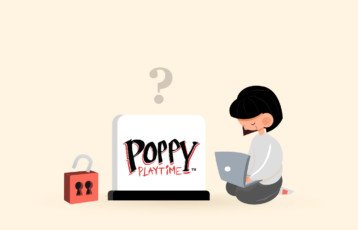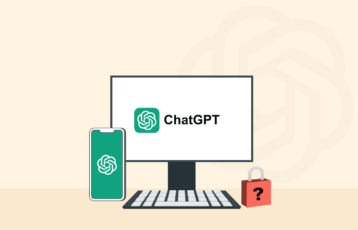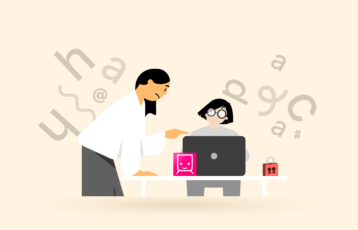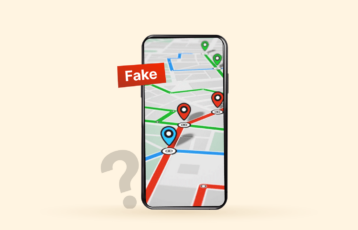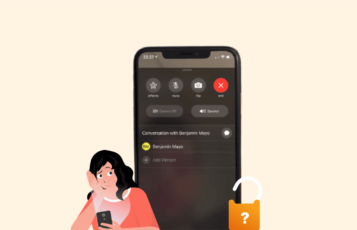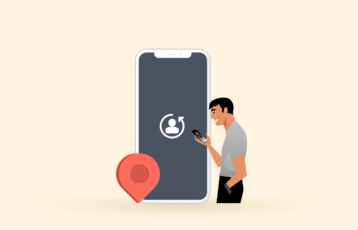iPhones have a reputation for being secure (and for good reason). Apple tightly controls hardware (Secure Enclave, a dedicated coprocessor that stores and processes sensitive data like biometric information (Face/Touch ID) and device passcodes separately from the main processor), software, and the App Store, which raises the bar for attackers. But secure doesn’t mean it is invincible.
Threats like phishing, malicious profiles, compromised Wi-Fi, zero-day exploits, or risky behavior (like jailbreaking) can still expose your data on iPhone.
An iPhone is only as safe as how you use it. Keeping iOS updated, using a strong passcode, enabling Face/Touch ID and two-factor authentication, avoiding suspicious links, and restricting app permissions can make a huge difference.
In this guide, we’ll explain how iPhones can be targeted, what the likely impacts are, and step-by-step ways to lock yours down so you can stay one step ahead of attackers.
Restoring a hacked iPhone – The quick guide
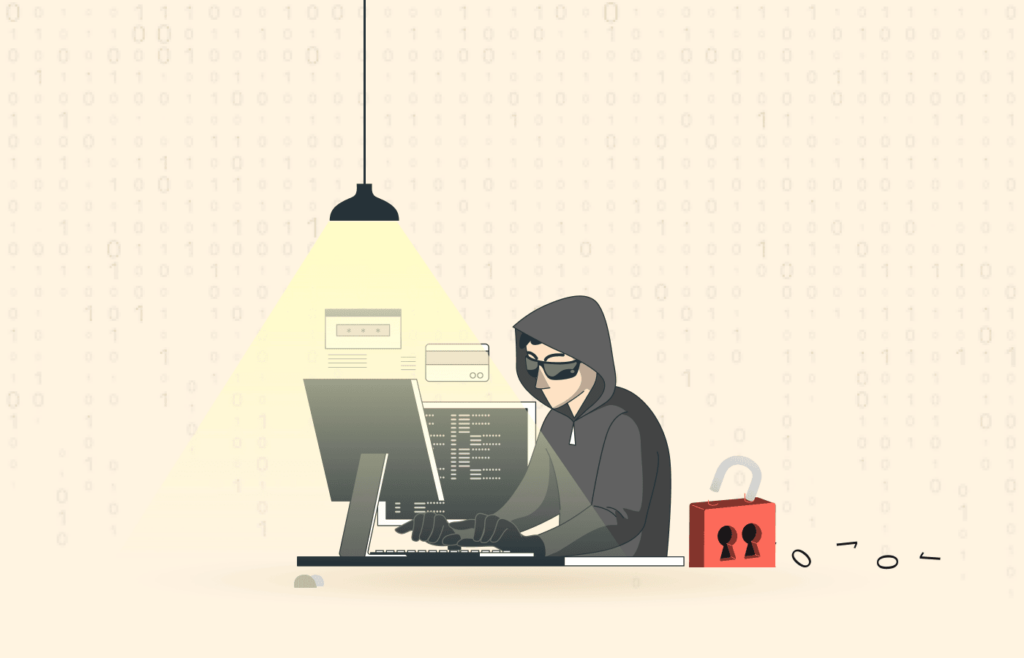
If your beloved iPhone fell victim to hackers, there’s no need to worry. You can fix it and restore it completely. Here’s what to do:
- Choose an iOS mobile security suite, and install it. Norton 360 is a good option, including features like Wi-Fi security, a VPN service, and web protection.
- Launch the app. Run a full scan. The scan will take a while because it will go through every file in your system, looking for any signs of security problems.
- After the scan completes, take the time to read the report in full. The information will tell you the security problems you are facing and how to repair them.
- Now that you have a security suite running on your iPhone, keep it active at all times. Thus, you will prevent your phone from getting hacked again.
Can an iPhone be hacked
Well, there’s no denying that the iPhone is more secure than Android. Apple’s ecosystem and regular security updates make widespread attacks difficult. However, iPhones can still be compromised through social engineering and a few technical routes (that hackers and cybercriminals use).
Methods like Phishing (malicious links or fake websites that steal your Apple ID), malicious configuration profiles or apps sideloaded on jailbroken devices, public Wi-Fi sniffing when you accept insecure networks, and SIM swapping can make your iPhone vulnerable to cyber attacks.
If you are experiencing unexpected battery drain, unknown apps, strange popups, or login alerts from Apple, that means you are on the targeted list.
The question is how bad actors carried out these attacks. Keep reading to explore.
Ways through which an iPhone hack may happen
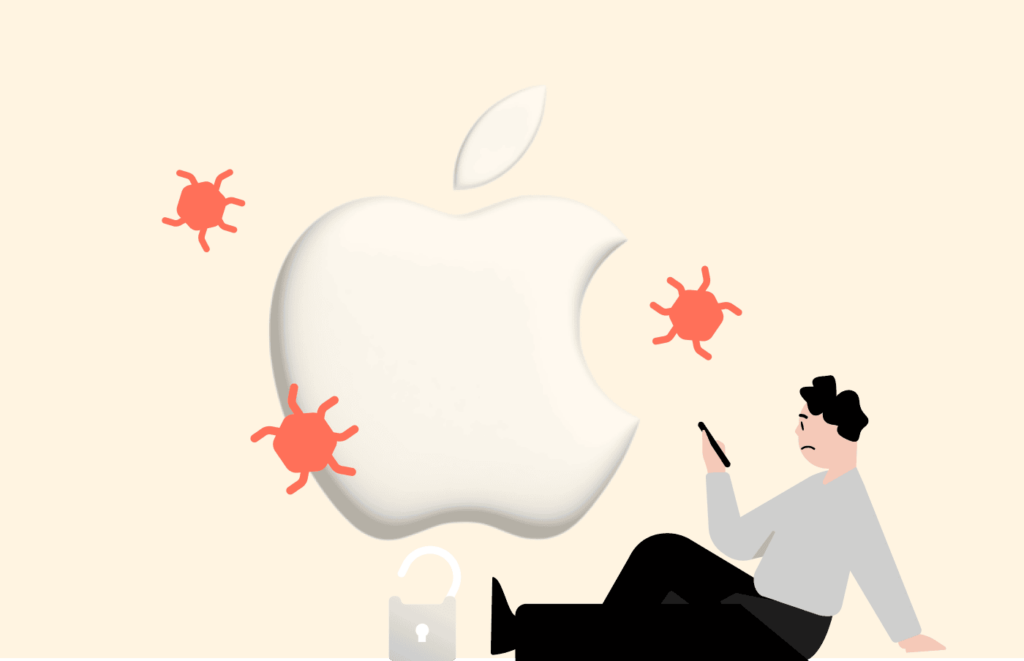
1. Wi-Fi connections
Have you ever encountered a public Wi-Fi network asking you for much information upfront before you can connect? And then, you must go through an outrageous number of terms and conditions pages. Unfortunately, sometimes we’re desperate and will follow through with this craziness, even without the help of a VPN that can keep us safe under the circumstances. These networks are public, unprotected, and a hacker’s wet dream. You usually find them in:
- Airports. Many airports across the world offer Wi-Fi networks for their travelers. Unfortunately, they are as unsafe as any public Wi-Fi network is bound to be. If on top of everything, the network requires you to provide personal details, or if a third party is in charge of it, then more red flags are waving in the air — any resemblance to Boingo is not coincidental.
- Budget hotels and motels. Keeping a reliable and secure Wi-Fi network takes resources. The most affordable motels are rarely interested in devoting any of their meager resources to that service, so they usually have an open network for everybody.
- Cafes and bars. Coffee shops and Wi-Fi go together like movies and popcorn. Starbucks is a good example. Have you ever thought twice about connecting to your favorite Starbucks Wi-Fi network? Well, unless you had an iPhone VPN active always, you should have.
2. URLs
You’ve probably read this before: if a link comes from an unknown source, you should never open it. It’s hard to believe that phishing remains one of the most effective hacks, but it’s still effective, and phishers are a pretty creative bunch. They’ve found many ways to scam unsuspecting users. Here are some of them:
- Email. Email phishing attacks have been around for decades. And we’re all still getting links to a “free cruise” or notice for our winning lottery tickets. These days, more sophisticated attackers can make their emails look like legitimate messages from Google, Amazon, Microsoft, or Apple. The classical phishing email will ask you to “update” your password.
- SMS. Can iPhones get hacked from text messages? It’s a common query for most iPhone users. And the answer to it is “yes.” Text messages are very cost-effective for hackers. They allow them to rely on quantity over quality and still get something out of their efforts.
- Phone calls. The domestic phone networks of many countries are flooded daily with scam calls. These are simple phishing attacks where the telephone call replaces a fraudulent web page.
- Social media. Social media are a sign of our times. Some accounts exist that look like targeted ads, but they use the latest phishing technique. So, keep your social media accounts as private as possible to avoid public (especially negative) attention.
- Web ads. Adds are the curse of the web. Unfortunately, they’re also at the heart of many business models of successful tech corporations. Many are not merely annoying but pose real risks to the users who click on them, even on iPhones.
- Fraudulent software. There are fraudulent versions of legitimate paid software that criminal hackers exploit for phishing. Be careful when downloading apps like “free VPNs” or “free antivirus suites.”
3. Apps
The digital economy is new in the human experience. Nevertheless, it’s been around for long enough for a principle to be clear: whenever you’re not paying for a digital service or product, you are the actual product. The amount of ink spilled on the subject of Facebook, Google, and other tech firms selling user data is enormous. However, being a household name is not a requirement for spying on people in the digital environment. Any relatively exotic or small app can spy on you effectively. And if you allow it, however unknowingly, you will make its task easier to accomplish.
So, let’s turn to “free” apps. They will offer free wallpapers, ringtones, VPNs, and novelty camera features. You should be suspicious of any app that doesn’t come from a trusted source and provides anything for “free.” Pay attention to the following signs indicating a phone hack — they may tell you that a new “free” app is indeed doing sketchy things:
- Overheating, shorter battery life. If your battery lasts noticeably fewer minutes after you install a particular app, it’s a bad sign. The app is consuming all that power to do something. Most probably something for which you didn’t install it.
- Absurd permissions. Why is your fitness-tracking app asking you for access to your contacts? Why do so many apps with nothing to do with video or taking pictures need permission to access your microphone and camera?
- Behavioral change. Intrusive apps will prompt changes in your device’s behavior. If once you installed that new free app, your iPhone’s usability or general behavior changes noticeably, it’s terrible news.
4. People
People who are close to you can become a threat to your privacy. It’s unfortunate, but it’s true. For example, consider that about a quarter of all financial security breaches come from an ex.
- Stalkerware. You don’t need to be famous to get stalked. An abusive ex-partner, a nosy family member, and even your current partner can install apps into your iPhone, known as “stalkerware.” The app can monitor your keystrokes, chats, and every breath you take.
- Direct data transfer. Simple but effective. You leave your phone unattended for a minute. In the meantime, somebody else plugs a USB stick in or connects it to a computer. In a few minutes, they can extract the bits and pieces of critical information they want. And yes, this scenario implies that the wrongdoer is somebody close to you.
5. Governments
Governments are hacking threats, period. Have you heard about Edward Snowden? Of course, most governments don’t have the resources or interest to pay a lot of attention to every citizen. However, journalists, political activists, and opponents are typical targets in many countries — some of them are not considered repressive, like Singapore.
And then you have other countries historically oppressing a particular ethnicity. As a result, members of that group are at a higher risk of catching their government’s digital eyes. That is where a VPN comes in very handy.
And if you move around a little, your government is not your only concern.
Let’s suppose you go to China. You’ll realize that the digital ecosystem there is different. Apps like WeChat, Alipay, or QQ are all the rage, while your usual suspects like Google, WhatsApp, and others are either useless or banned. Nevertheless, tens of millions of Chinese residents get by with their own set of mobile apps. These apps, which are now essential tools if you live in China, have the government’s blessing because they keep them heavily surveilled.
How can I protect my iPhone from hackers?
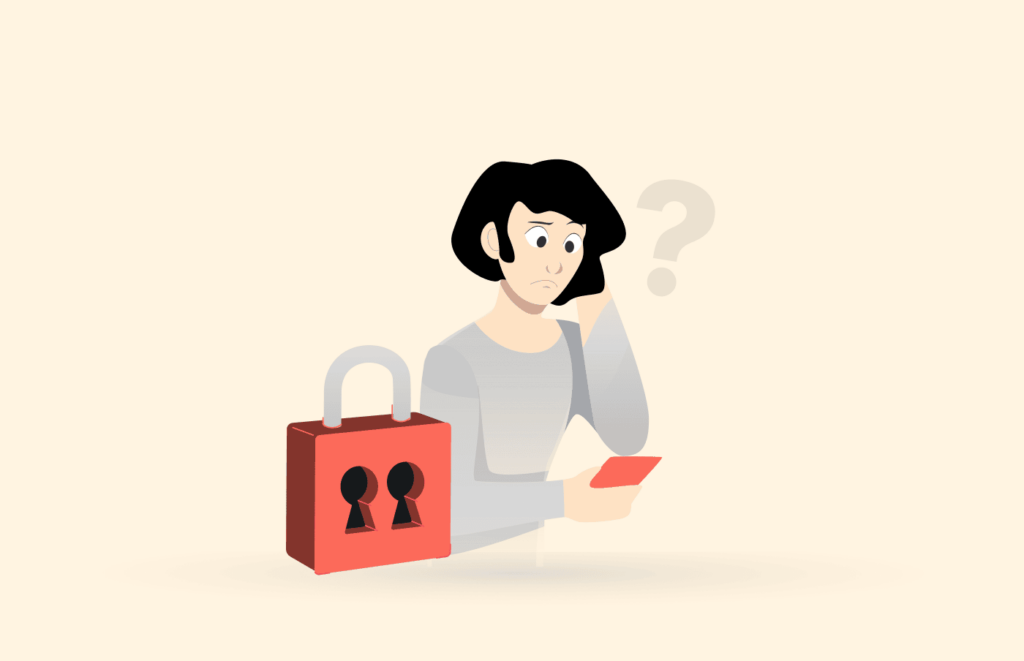
The list of potential threats to iPhones is substantial. However, there’s no reason for you to panic. Once understand that your security is not Apple’s responsibility, you will also realize that there’s plenty you can do to keep your device safe. Here are some iPhone privacy best practices that you can adopt to protect your device from hackers.
- Remain updated. Software updates are your friends. They are often released to address security vulnerabilities. Yes, sometimes they can be glitchy. However, consider that the inconveniences that installing every new update quickly can give you are irrelevant compared to the security problems they solve.
- Use 2FA. Protect your Apple devices and accounts with two-factor authentication. If you can set it up to use biometric authentication, it’s even better!
- Use a VPN. As far as we are concerned, VPNs are no longer optional luxury services but essential tools of the digital age. And if you’re a frequent public Wi-Fi user, you definitely need to ensure that you are on a VPN whenever you’re not home. Of course, we know and understand how much you like to play with your toys when drinking your favorite beverage at Starbucks. But your friendly neighborhood hacker likes it even more than you.
- Mind your passwords. Use good password practices. We have articles on that on this website. Let’s remind you to use passwords that include at least a number, a sign, and both lower and uppercase letters. Also, every password must be unique to its account.
- Be careful with your personal information. If you’re going to give away any personal information, make sure that the request comes from a legitimate organization.
- Set up a passcode. If your iPhone is down for a given period, you will need a passcode to open it again. Enable this feature like this:
- Go to “Settings.”
- Tap “Touch ID & Passcode.”
- Tap “Turn Passcode On.”
- Tap “Passcode Options.”
- Select “Create a Custom Alphanumeric /Numeric Code.”
- Turn on the Find My iPhone feature. It will help you find your device if you misplace it or lose it.
- Disable your iPhone’s Bluetooth whenever you’re not using it.
- Don’t click on phishy links. Malicious websites can be effective in infecting a computer or an iPhone. The best way to prevent the problems they create is to stay away from them. So don’t follow any links unless you trust the sender completely.
- Don’t jailbreak your iPhone. Jailbreaking your device means overriding the restrictions that iOS places on users. It may sound very cool, but some of those restrictions are there to protect you from yourself. Yes, a jailbroken iPhone is open to many new possibilities and things you can’t do with your standard iOS. But those new possibilities include additional vulnerabilities you can’t have in a regular device.
How to tell if your iPhone is hacked

Every hack is different, and it shows in different ways. But, unfortunately, the best ones don’t show much at all. However, a few tell-tale signs can help you identify an iPhone hack.
- The phone is too hot too frequently.
- The battery depletes too quickly.
- There are calls and SMS messages on your device that you don’t remember doing or know you didn’t do.
- Some people in your contact list start asking you what the deal is with all those weird messages.
Be diligent, and don’t rush to any conclusions. New iOS updates can sometimes have weird effects on phones, but they go away quickly.
What to do if iPhone is hacked?
Every hack is different, so the correct reaction is specific to each scenario. Unfortunately, there is no digital panacea that will solve every possible iPhone security breach. However, there is always something you can do to alleviate your situation while you figure out the utterly appropriate response:
- If you can trace the root of your problems to an insecure Wi-Fi network, disconnect from it and make sure not to use it again.
- If a URL is to blame, remember everything you downloaded from it. Delete everything.
- If an app is the root cause of the problem, delete it.
- Make sure your iPhone remains updated to the latest releases.
- If you find your Apple ID or iCloud compromised, you must contact Apple immediately. Use a clean device to call 1-800-275-2273 or proceed to an Apple store.
FAQs
There is no single universal thing that will tell you that an iPhone’s hacked. It depends on the type of hack. Maybe your battery will last too short a time. Possibly your data usage will explode. The most telling sign is when your contacts start getting calls or messages from you that you didn’t initiate.
Having an iPhone hacked remotely is indeed possible in principle. However, this is the most challenging way to hack them and, therefore, the most unlikely one. Malicious software and hacks involving physical contact are way more likely to be the cause of your problems.
Yes, this is a possibility. That is why a VPN and a good antivirus suite are essential to keep your phone safe.
No, this can’t happen. But unsolicited phone calls are among the phishing strategies that can then allow a third party to hack your phone.
No, rebooting your iPhone won’t make your device safe again. In the best-case scenario, it will delay the hackers a few seconds before they return to business. A complete restoration of factory settings is different, as it can eliminate the hacks.
